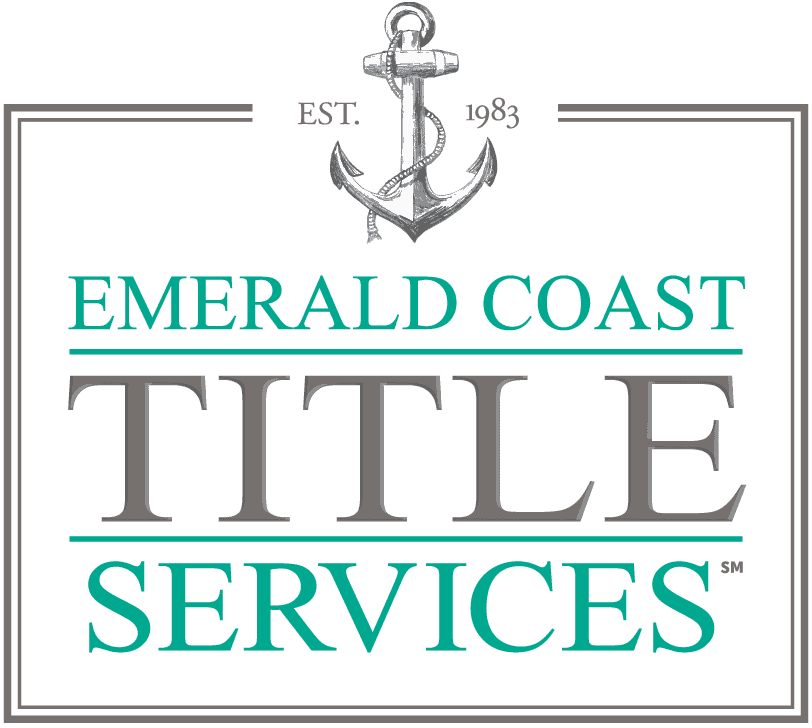Four Parts to the Closing Process
Information Gathering
Initially the closing process is information gathering and has become increasingly computerized and automated. Detailed information about the buyer and seller is necessary to get the proper documentation in order for the closing process to be completed properly. Emerald Coast Title is only a click or phone call away and the staff is courteous and friendly. If there are any questions you are unsure on how to answer just ask us and we will be happy to assist. It is vitally important the information received is correct as that information is carried forward throughout the rest of the process. Marital status and proper addresses are very important in making sure that your property rights are established through the correct documentation.
We will also be gathering information from the Homeowners’ or Condominium Owner’s Association, the Seller’s Mortgage holder, the county, city, and utility companies, and on occasion, from the IRS. We will also make sure we have a current survey, if not, one may need to be ordered.
Title Research
A search of the property records is done in the county and state where the subject real property of the transaction is located. This title search routinely goes back 30 years, many times later, and researches every single party that has ever held title to the property. It checks for liens and any restriction on the use of the property that has been placed in the public records. A written report called a Commitment is issued to the buyer and that binds the closing agent to its terms and requirements on how to “clear title” for the title and what documentation is needed for this purpose. The title commitment is provided to the buyer and a subsequent policy of title insurance is issued after the closing takes place.
Document Preparation and Closing
Documents such as Deeds and Mortgages, lien affidavits and closing statements are prepared by the closing agent, and lenders and attorneys involved in the transaction. At closing, transfer taxes must be paid as well as liens against the property cleared and other claims must also be settled (including closing costs, legal fees, association fees, and adjustments). The Closing or Settlement is a brief process where all of the necessary paperwork needed to complete the transaction is signed. Closing is typically held in an office setting, sometimes with both buyer and seller at the same table, sometimes with each party completing their papers separately. Many transactions are conducted by mail and or email. Emerald Cost Title strives to put the customers satisfaction and convenience first.
Whatever the case, the result is that title to the property is transferred from seller to buyer. The buyer receives the keys and the seller receives payment for the property. From the amount credited to the seller, the closing agent subtracts money to pay off the existing mortgage and other transaction costs. Deeds, loan papers, and other documents are prepared, signed, and filed with local property record offices. One of the best parts of settlement is that buyers and sellers need to do very little. Before closing, buyers typically have a final opportunity to walk through the property to assure that its condition has not materially changed since the sale agreement was signed.
Disbursement and Recording
The final step of the process is that the buyer’s funds are deposited and the necessary liens and items necessary to clear title are paid and or removed by documentation. The seller’s funds as well as the other adjustments such as lender fees, recording fees, documentary taxes, commissions are paid by the closing agent. The Deed and any other documents necessary for recording are delivered to the County Clerk’s office and are entered into the public records of the county in which the property is located. This establishes the new owner is the record title holder of the real property.
